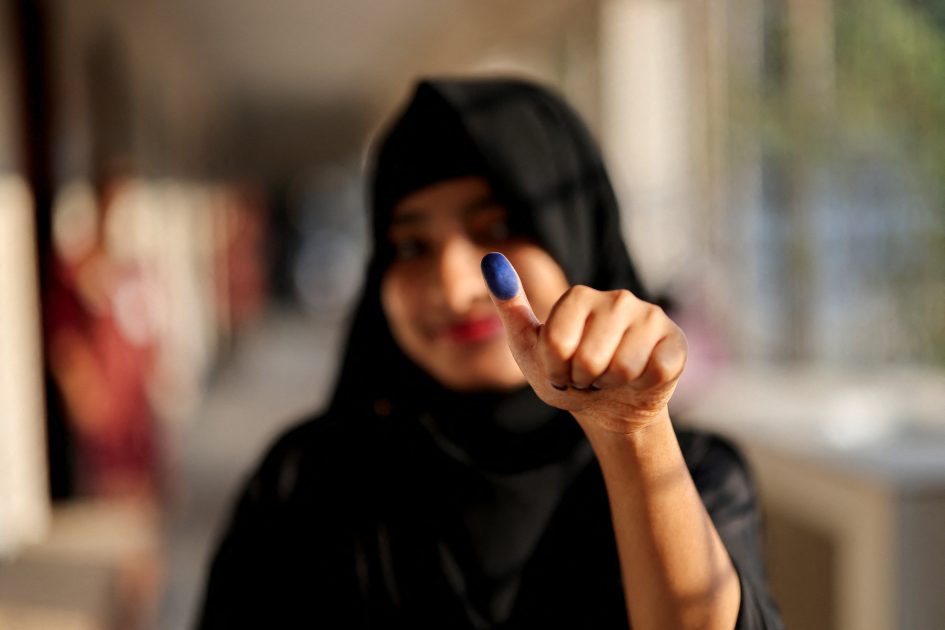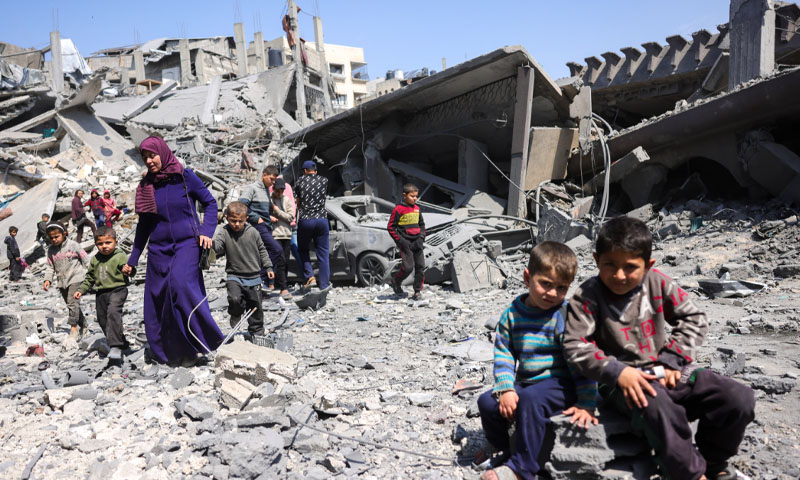- Web Desk
- Yesterday
Overcoming taboos: Pakistani husbands embrace family planning
In a country where family planning has long been shrouded in taboo and secrecy, a groundbreaking initiative is challenging cultural norms and empowering communities to prioritise reproductive health. The “Improving Access to Rights-based Family Planning for Underserved Communities Project” project, under the Rural Support Programmes Network (RSPN), funded by the United Nations Population Fund (UNFPA), is making notable progress in fostering open discussions about family planning in three districts: Rawalpindi, Muzzafargarh, and Rahim Yar Khan.
In Pakistan, as in numerous other nations, the discourse around family planning is often treated with caution due to its sensitive nature. Apprehensions about potential religious repercussions have impeded open dialogues regarding reproductive health. Nevertheless, the UNFPA-funded project, “Improving Access to Rights-based Family Planning for Underserved Communities” by RSPN, has unequivocally proven that addressing family planning is not only viable but imperative for enhancing the well-being of individuals and their communities.
In Union Council Jamal Din Wali, Rahim Yar Khan, a group of 15 husbands gather on a scorching hot afternoon in a small room within their village school. They eagerly engage in discussions led by Mr. Ghulam Rabbani, a trained coach who also serves as the local mosque’s imam. Using counseling cards provided by the project team, Mr. Rabbani guides the husbands through various family planning topics, including sexual and reproductive rights, birth spacing, family planning methods, and the significance of postnatal care.

This unique combination of roles allows Mr. Rabbani to effectively connect with the husbands, utilising his influence and religious authority to convey important information about family planning. The involvement of religious leaders like Mr. Rabbani in spreading the message of family planning is pivotal for several reasons. Firstly, their respected position within the community fosters open discussions and trust. Husbands readily engage in conversations, knowing that the information aligns with their religious beliefs. Secondly, religious leaders bridge the gap between religious teachings and modern healthcare practices, dispelling misconceptions and addressing concerns. This creates an environment where individuals can navigate family planning within the context of their faith. Moreover, their involvement normalises discussions within religious spaces, challenging taboos and promoting acceptance.
These sessions are held through “husband schools”. Husband schools are transformative spaces where men actively participate, seeking to protect their families from health issues that often lead to poverty. The sessions are characterised by lively debates, as questions are raised and answered, dispelling confusion, and fostering a deeper understanding. The participants’ newfound knowledge reinforces the belief that family planning serves as a catalyst for a better quality of life.
During these sessions, the husbands openly share their experiences and concerns. They debunk prevalent myths, such as waiting a day before giving newborns their mother’s first milk, and eagerly seek solutions to challenges like limited access to nearby health facilities for routine checkups. The husbands’ collective understanding of the importance of birth spacing and the economic implications associated with larger family sizes is apparent, demonstrating their commitment to informed decision-making.
The positive impact of the husband schools extends beyond the men themselves. Women in the community have reported increased confidence and support from their husbands regarding family planning. Previously hesitant to discuss contraceptive use due to fears of their husbands’ reactions, women now feel empowered to make decisions about their reproductive health.
The success of this project can be attributed, in part, to its understanding of the psychological dynamics within a patriarchal society. In this context, men often respond more positively to conversations and guidance from other men. By employing male coaches and creating husband schools, the project has tapped into this psychological perspective, effectively engaging and empowering men to embrace family planning. The open and supportive environment fostered by these sessions allows men to share their experiences, seek clarification, and challenge preconceived notions. This approach has proven to be a resounding success, as it not only educates and empowers men but also strengthens the dialogue around family planning, ultimately benefiting the entire community.
To ensure comprehensive awareness, the project also includes women’s awareness sessions led by female social organisers. These gatherings provide a rare opportunity for approximately 15-20 women to openly discuss their personal and collective family planning concerns, fostering a sense of solidarity and support.
The project extends beyond mere awareness-raising. It also includes generating referrals so the community can access family planning services. Dr Azra, a dedicated Lady Health Visitor (LHV) at the Rural Health Centre (RHC) in Union Council Jamal Din Wali, reported a notable increase in referrals seeking family planning services since January 2023, thanks to the project’s influence. The RHC has successfully provided family planning services to 454 of the 495 referrals generated through these sessions, ensuring that individuals receive the support they need to make informed choices about their reproductive health.
As of December 2023, under the project a total of 11,054 people (6,238 male, 4,186 female) availed family planning services from health facilities and MSU camps.
The Improving Access to Rights-based Family Planning for Underserved Communities Project serves as a beacon of hope in a society where family planning discussions were once deemed taboo. By creating safe spaces for open dialogue and fostering a culture of understanding and support, the initiative is transforming lives and paving the way for a healthier future. Through empowering husbands and women alike, this project represents a significant step towards achieving comprehensive reproductive healthcare for all.






